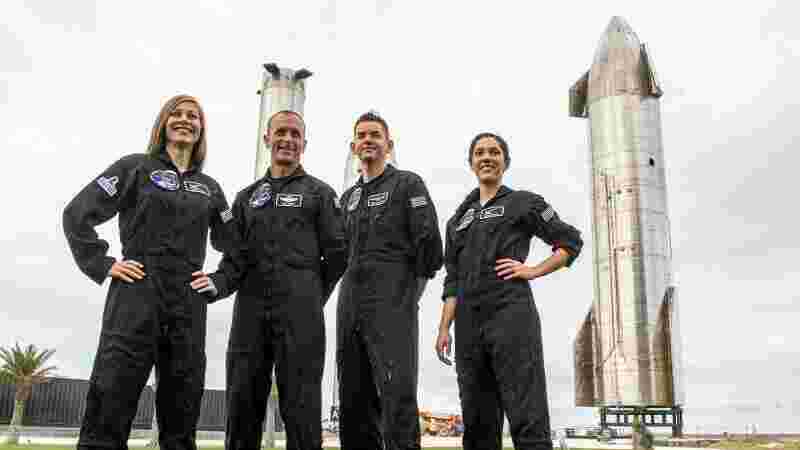Polaris Dawn: A High-Stakes Mission to the Edge of Space
SpaceX, the groundbreaking aerospace company led by Elon Musk, is embarking on a daring mission to push the limits of human space exploration. Polaris Dawn, a five-day trek into Earth's radiation belts, will carry four private astronauts on a nail-biting journey.
The Mission Objectives
Polaris Dawn aims to achieve several ambitious objectives:
Venture into Earth's Van Allen radiation belts, the farthest humans have traveled since the Apollo program.
Conduct the first commercial spacewalk, testing the capabilities of SpaceX's newly developed Extravehicular Activity (EVA) suits.
Perform approximately 40 scientific experiments to gain valuable insights into the effects of space on the human body.
The Crew
The Polaris Dawn crew consists of four highly experienced individuals:
Jared Isaacman: Billionaire founder of Shift4 and commander of the mission.
Anna Menon: SpaceX mission specialist and biomedical engineer.
Sarah Gillis: SpaceX operations engineer and astronaut trainer.
Scott "Kidd" Poteet: Former Air Force pilot and longtime friend of Isaacman.
The Risks
Polaris Dawn carries inherent risks:
Radiation Exposure: Traveling through the Van Allen radiation belts exposes the crew to potentially harmful ionizing radiation.
Spacewalks: Conducting a spacewalk in the unforgiving environment of space is a high-risk activity.
Reentry: Reentering Earth's atmosphere at high speeds generates intense heat and pressure that can jeopardize the spacecraft.
The Significance
Polaris Dawn is a pivotal mission for SpaceX and the future of commercial space travel. It will:
Test advanced technologies for future human missions to Mars and beyond.
Advance our understanding of the effects of space on human health and performance.
Inspire generations of future space explorers.
Countdown to Launch
Polaris Dawn is scheduled to launch between 3:38 and 7:09 a.m. ET on Tuesday from NASA's Kennedy Space Center in Florida. The mission will last approximately five days, with a planned return to Earth on Saturday.
A Watchful Eye
As the Polaris Dawn crew embarks on this historic journey, the world will be watching with bated breath. Their daring mission will redefine the boundaries of human space exploration, paving the way for future advancements in space sciences and technologies.
Meet the 4-person crew spearheading SpaceX’s daring Polaris Dawn mission
Here’s why tech billionaire Jared Isaacman, former US Air Force pilot Scott “Kidd” Poteet, and SpaceX engineers Sarah Gillis and Anna Menon are going to orbit.


